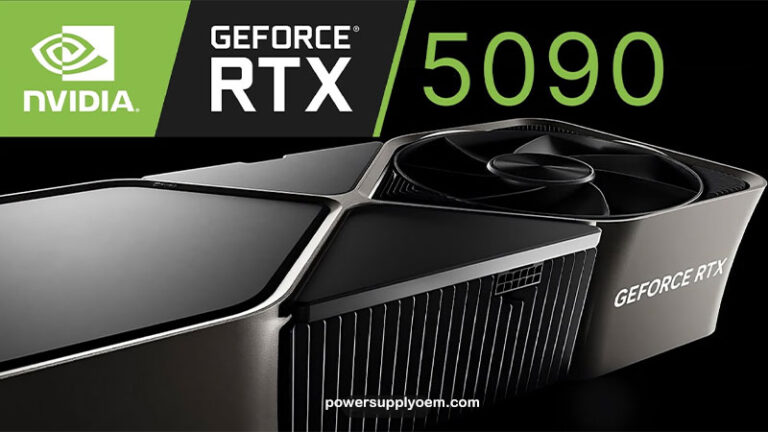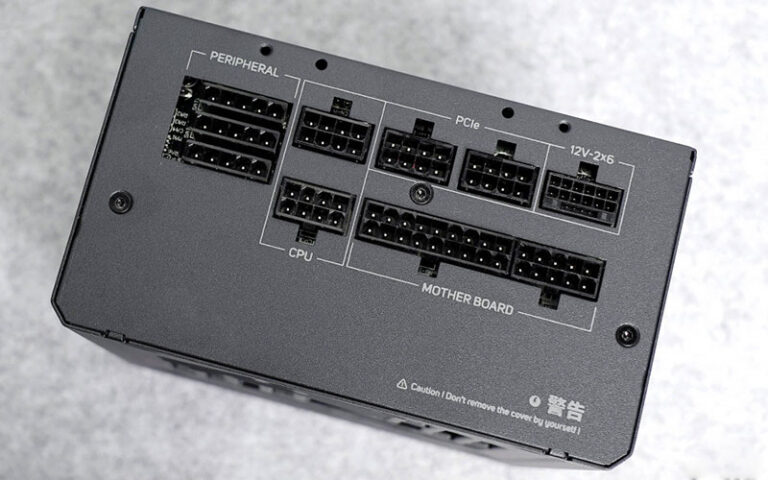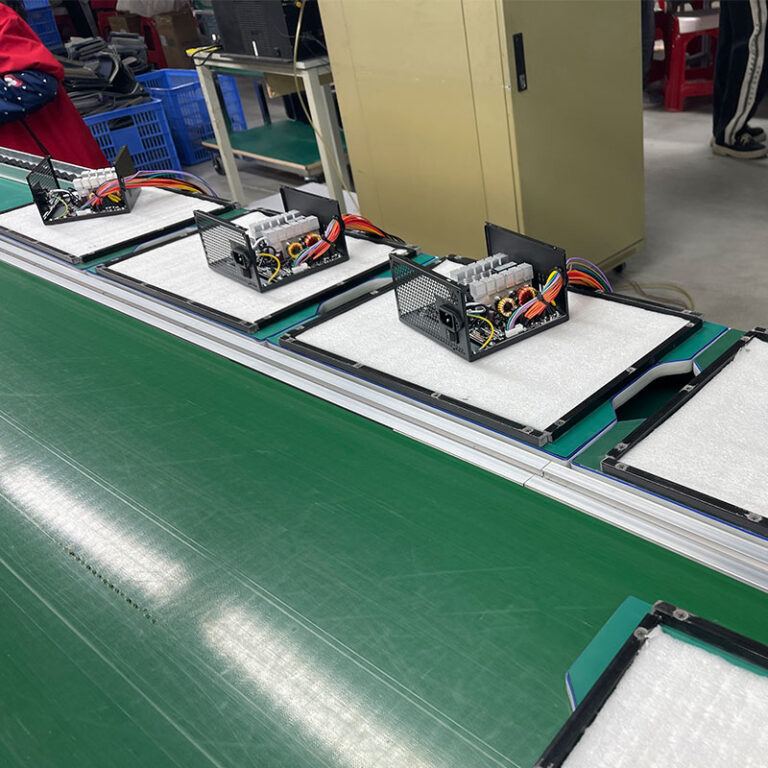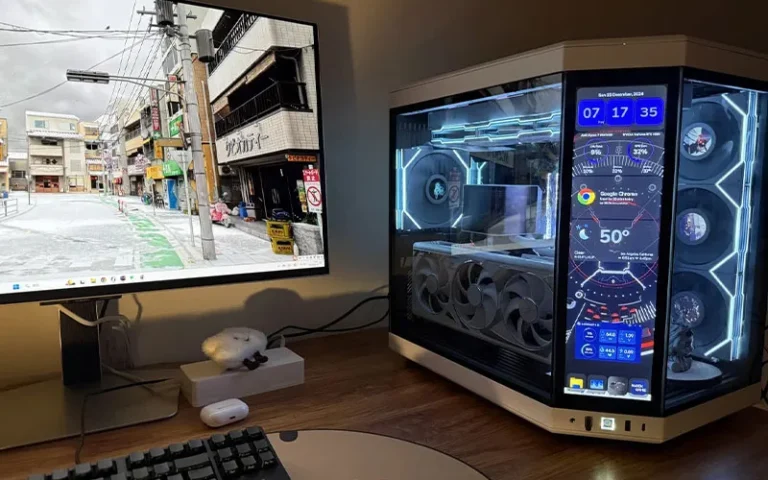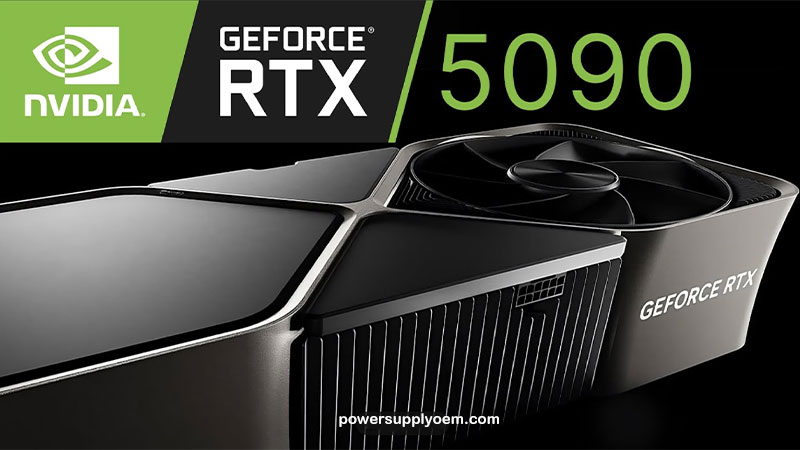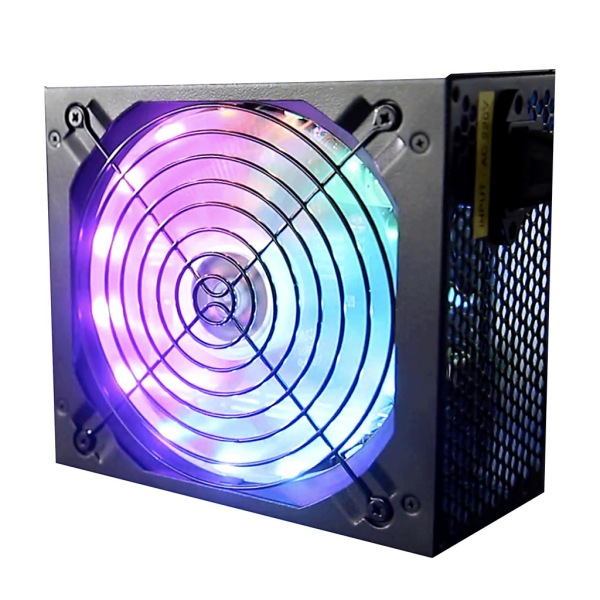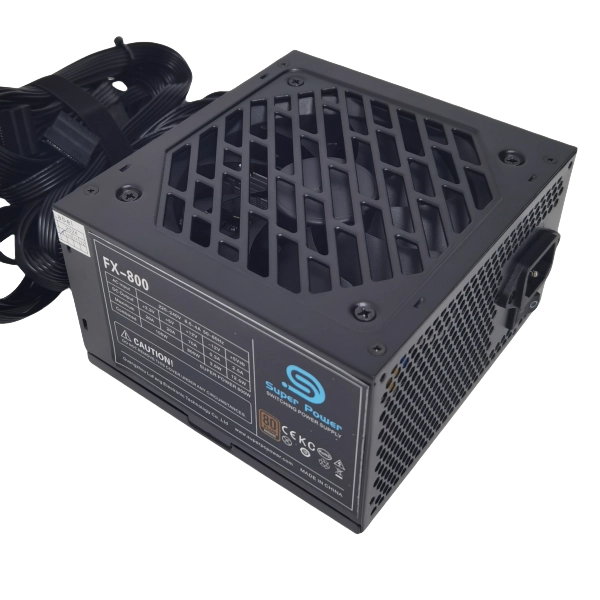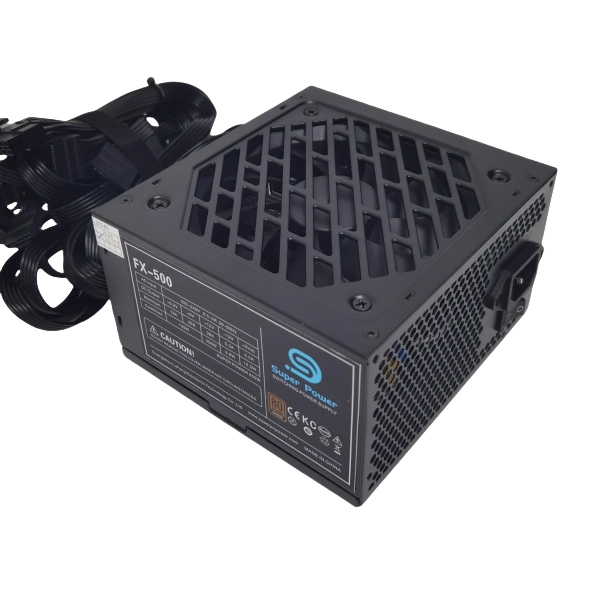-
Building E, No. 65 Xingshan North Road, Liangtian, Baisha Industrial Park, Baiyun District, Guangzhou

How To Select Power Supply For PC
Choosing the Right PSU: How to Choose the Perfect Power Supply for Your PC Builds
Select power supply (PSU) is a critical step in building or upgrading a PC, whether it’s a high-end gaming PC, a workstation, or a simple home office desktop. This guide will help you choose a PSU that meets your system’s needs, providing stable and efficient power for all your components. We’ll cover essential factors such as wattage, form factor, efficiency ratings, and more, ensuring you have the knowledge to make an informed decision and pick the perfect power supply for your build. If you are looking for an 850W PSU, or even just a 500W power supply, we can help.
Table of Contents
1. Why is the PSU So Important for Your PC?
The PSU, or power supply unit, is often overlooked, but it’s arguably one of the most crucial components in any PC. It’s responsible for converting the alternating current (AC) power from your wall outlet into the direct current (DC) power that your computer’s internal components need to function.
Here’s why the PSU is so important:
- Provides Power to All Components: The PSU delivers power to the motherboard, CPU, GPU, storage devices (SSDs and hard drives), fans, and any other connected peripherals. The power supply must be able to do this.
- Ensures System Stability: A reliable PSU provides stable and consistent power, preventing system crashes, freezes, and unexpected shutdowns.
- Protects Components: A good PSU includes protection features (like over-voltage, under-voltage, and short-circuit protection) that safeguard your components from damage due to power fluctuations or surges.
- Impacts Energy Efficiency: A higher-efficiency PSU wastes less energy as heat, which can lead to lower electricity bills and a cooler, quieter system.
In short, the PSU is the foundation of your PC’s power system. Choosing the right power supply is essential.
2. Determining Your Wattage Needs: How Much Power is Enough?
Wattage is the primary specification of a PSU, indicating the maximum amount of power it can deliver. Choosing the right wattage is crucial:
- Too Little Wattage: An underpowered PSU can lead to system instability, crashes, shutdowns, or even component damage.
- Too Much Wattage: An overpowered PSU is generally safe, but it’s unnecessary and can be less efficient at lower loads.
To determine your wattage needs, you’ll need to consider the power consumption of all your components. Here are some general guidelines:
- Basic Office/Web Browsing PC: 300-450W
- Mid-Range Gaming PC: 500-650W A 500W PSU is popular.
- High-End Gaming/Content Creation PC: 750W-1000W+ An 850W PSU can be used.
- Workstation: 1000w +
It is important to know how much power you need.
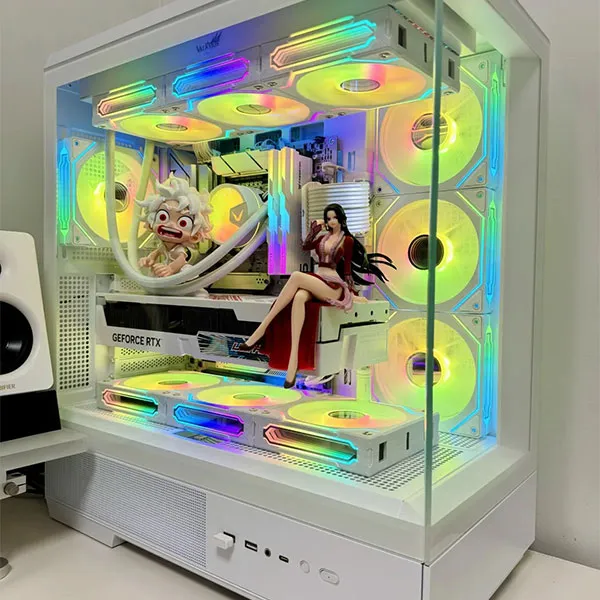
3. Using a Power Supply Calculator: Tools and Methods
Power supply calculators are invaluable tools for estimating your system’s power requirements. These online tools ask you to input your components (CPU, GPU, motherboard, RAM, storage, etc.), and they calculate the estimated total power draw.
Here are some popular PSU calculator options:
- OuterVision Power Supply Calculator: A comprehensive calculator that allows for detailed component selection and customization.
- Newegg PSU Calculator: A user-friendly calculator integrated into Newegg’s website.
- Cooler Master Power Supply Calculator: A straightforward calculator from a reputable PSU manufacturer.
When using a power supply calculator, it’s recommended to add a buffer of 100-200W to the calculated wattage to account for power spikes, future upgrades, and to ensure the PSU isn’t constantly operating at its maximum capacity. You need to account for peak power. The key is to find a PSU to fit your needs.
4. Understanding PSU Form Factors: ATX, SFX, TFX, and More
PSU form factor refers to the physical size and shape of the PSU. Choosing the correct form factor is essential for ensuring the PSU fits inside your PC case.
Here are some common PSU form factors:
- ATX: The most common form factor for standard desktop PCs. ATX PSUs offer a wide range of wattage options and features.
- SFX: A smaller form factor designed for small form factor PC builds. SFX PSUs are more compact but might have lower wattage options.
- TFX: An even smaller, thinner form factor typically found in slimline or compact desktop PCs.
- Flex ATX: Another compact form factor.
Always check your PC case’s specifications to determine the compatible PSU form factor. Using the wrong form factor will prevent you from installing the PSU correctly. You need a PSU that meets your needs.
5. Efficiency Ratings: The 80 PLUS Certification Explained
The 80 PLUS certification is a voluntary program that indicates a PSU’s power efficiency. It guarantees that the PSU will be at least 80% efficient at 20%, 50%, and 100% load, meaning it wastes less energy as heat. PSU efficiency is important.
Here’s a breakdown of the 80 PLUS tiers:
- 80 PLUS: Basic efficiency.
- 80 PLUS Bronze: Slightly higher efficiency.
- 80 PLUS Silver: More efficient.
- 80 PLUS Gold: High efficiency. A gold rated PSU is very popular.
- 80 PLUS Platinum: Very high efficiency.
- 80 PLUS Titanium: The highest efficiency rating.
A higher 80 PLUS rating translates to lower electricity bills, less heat generation, and potentially a quieter system (as the fan doesn’t need to work as hard). An efficient power supply can save you money. You will need to look at the power requirements. You may be able to use less power.
6. Modular, Semi-Modular, and Non-Modular PSUs: Cabling Considerations
PSUs come in three main cabling configurations:
- Non-Modular: All cables are permanently attached to the PSU. This can lead to cable clutter, especially in smaller cases.
- Semi-Modular: Some cables (usually the essential ones like the 24-pin ATX and 8-pin CPU) are permanently attached, while others are detachable. This offers a good balance between convenience and cable management.
- Modular: All cables are detachable, allowing you to use only the cables you need. This provides the best cable management and airflow.
Modular and semi-modular PSUs are generally preferred for their cleaner builds and improved airflow.
7. Connectors and Compatibility: Ensuring Everything Plugs In
Ensure the PSU you choose has all the necessary connectors for your components:
- 24-pin ATX Connector: The main power connector for the motherboard.
- 8-pin (4+4 pin) EPS/ATX12V Connector: Provides power to the CPU.
- PCIe Connectors (6-pin or 8-pin): Provide power to the graphics card (GPU).
- SATA Power Connectors: Provide power to SSDs and hard drives.
- Molex Connectors: Older connectors sometimes used for fans or older peripherals.
Carefully review your components’ specifications to determine their power connector requirements and ensure the PSU you choose has the necessary connectors.
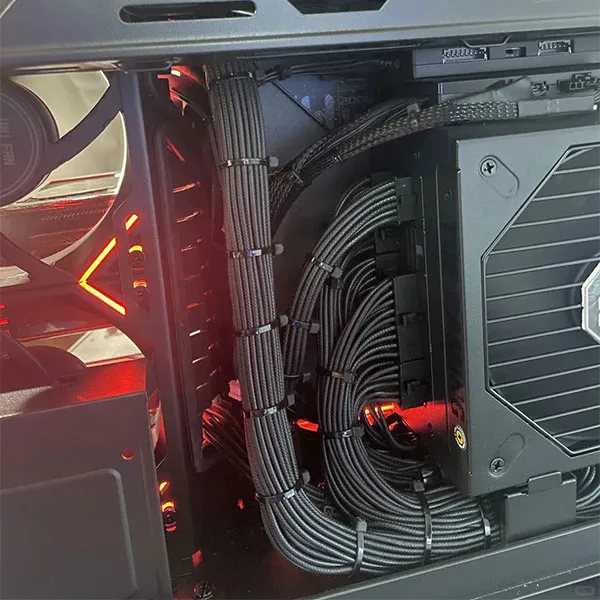
8. Beyond Wattage and Form Factor: Additional Features to Consider
While wattage, form factor, and efficiency are primary considerations, other PSU features can enhance performance, reliability, and user experience:
- Fan Size and Noise: A larger fan can often cool the PSU more effectively and quietly.
- Protection Features: Look for PSUs with over-voltage protection (OVP), under-voltage protection (UVP), over-current protection (OCP), short-circuit protection (SCP), and over-temperature protection (OTP). These features protect your components from damage due to power fluctuations.
- Warranty: A longer warranty indicates the manufacturer’s confidence in the PSU’s reliability.
- Single Rail vs. Multi-Rail: This refers to how the 12V power is distributed. Single-rail designs are generally preferred for high-end systems.
These features can contribute to a more stable, reliable, and user-friendly PC build.
9. OEM Power Supplies: The Benefits of a Direct Partnership
As an OEM (PC power supply, ATX power supply, 80 Plus Gold) manufacturer, we specialize in providing customized power supply solutions for businesses, system builders, and other organizations, including:
- PC power supply brand: We can provide the foundation for your product line.
- 3C supermarket: We can offer cost effective options.
- Power supply wholesaler: We can provide custom orders for your needs.
- Agent: We have a dedicated team to provide support.
- Large Internet Cafe: We can handle large-volume orders.
Partnering with us offers several advantages:
- Customization: We can tailor power supplies to your exact specifications, including wattage, form factor, connectors, cabling, and branding.
- Quality: We use high-quality components and rigorous testing procedures to ensure the reliability and performance of our power supplies.
- Cost-Effectiveness: Buying directly from the manufacturer often results in better pricing, especially for bulk orders.
- Expert Support: Our team provides technical support and guidance throughout the design and manufacturing process.
Working directly with an OEM manufacturer gives you greater control over the quality and specifications of your power supplies. Our ATX Power Supply is a great option.
10. Custom Power Solutions for Specific Requirements
We offer a wide range of power supply options, including:
- ATX Power Supplies: The standard form factor for most desktop PCs.
- SFX Power Supplies: Compact PSUs for small form factor PC builds.
- FLEX Power Supplies: Even smaller PSUs for specialized applications. Check out our FLEX Power Supply.
- Custom Power Supplies: We can design and manufacture power supplies to your precise requirements.
Our team will work closely with you to understand your specific needs and recommend the optimal power supply solution, whether it’s a standard ATX PSU or a completely custom design. We have a PC POWER SUPPLY for every need. We can help you choose the right power supply for your situation.
Frequently Asked Questions
What happens if I choose a PSU with too little wattage?
Your system may experience instability, random shutdowns, crashes, or it may not even power on at all.
Can I use a PSU with a higher wattage than I need?
Yes, you can use a PSU with a higher wattage than your system requires. It won’t damage your components, but it might be less efficient at lower loads than a PSU with a wattage closer to your actual needs. A PSU with higher wattage is safe.
What is the difference between modular, semi-modular, and non-modular PSUs?
These terms refer to the PSU’s cabling. Modular PSUs have all detachable cables, semi-modular PSUs have some detachable cables, and non-modular PSUs have all cables permanently attached.
What does the 80 PLUS certification mean?
The 80 PLUS certification indicates a PSU’s power efficiency. A higher rating (e.g., 80 PLUS Gold) means the PSU is more efficient, converting more of the AC power from the wall into usable DC power and wasting less energy as heat.
How do I know which connectors I need?
Check the specifications of your components (motherboard, CPU, GPU, storage devices, etc.) to determine their power connector requirements.
How do I choose a good PSU?
Calculate your power needs, consider the PSU form factor and power supply’s efficiency, look for reputable brands, read reviews, and consider your budget. We can help you choose a power supply.
What is the best brand for PSU?
We provide high quality power supplies.
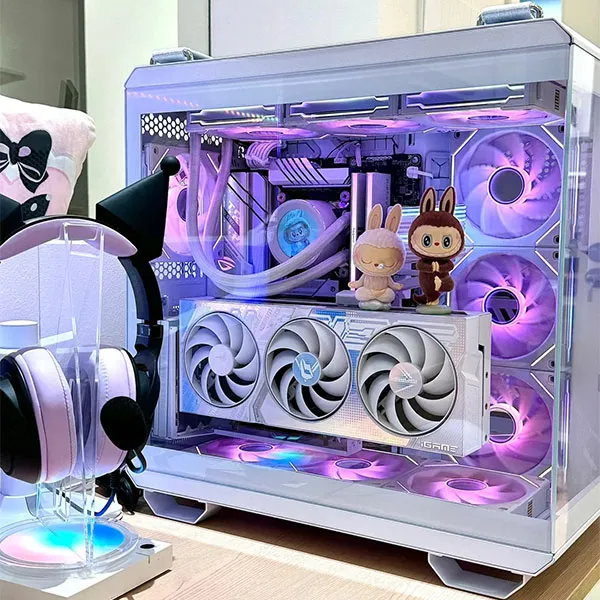
Summary
- Choosing the right PSU is crucial for a stable and reliable PC.
- Determine your system’s wattage needs using a power supply calculator and considering all your components. A PSU calculator is very helpful.
- Select the correct PSU form factor (ATX, SFX, etc.) for your PC case.
- Pay attention to the 80 PLUS certification for power efficiency.
- Choose between modular, semi-modular, and non-modular PSUs based on your cabling preferences.
- Ensure the PSU has the necessary connectors for all your components.
- Consider additional features like fan size, protection features, and warranty.
- As an OEM power supply manufacturer, we offer customized solutions tailored to your specific requirements.
- Partnering with us provides access to expertise, quality, cost-effectiveness, and customization options.
- We offer a range of power supplies, including ATX, SFX, FLEX, and custom designs.
- You need to choose a PSU wisely.
- You now know how to choose a power supply.
- The information here will help you find the PSU for you.

